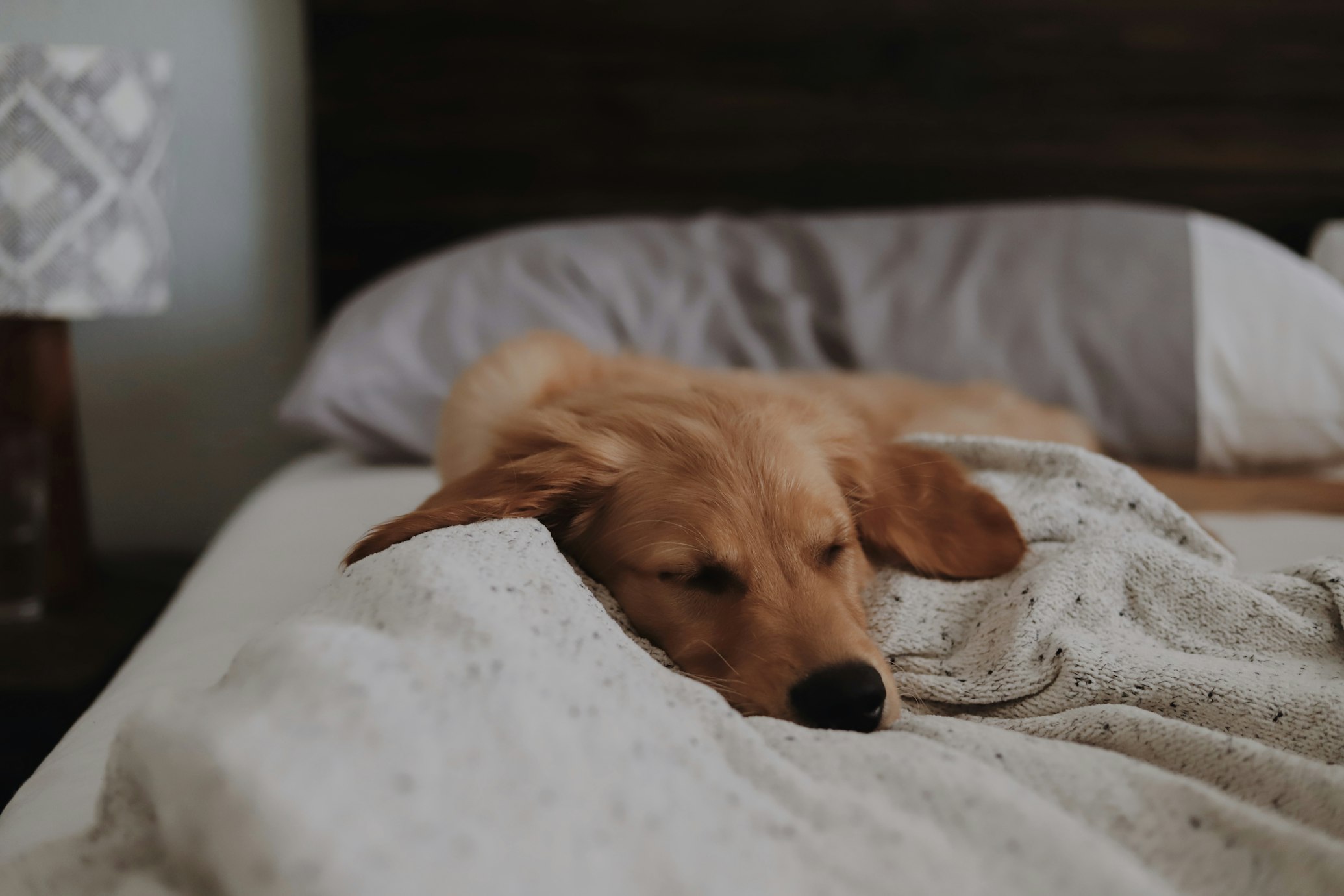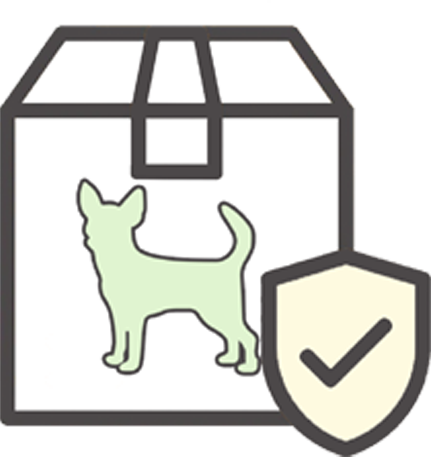Dog Tired? Good Night's Rest Tips for Dogs
Updated On: Friday, December 6, 2024 12:40:42 PM America/Los_Angeles
Just like humans, dogs need quality sleep to stay happy and healthy. Sleep is essential for holistic well-being and has been shown to impact cognitive health, immune system functioning, joint health, and more.
Photo by Amy Humphries
How Many Hours Does a Dog Sleep in a 24 Hour Period?
The amount of sleep a dog needs depends highly on a number of factors including age, breed, and environment. Adult dogs typically sleep 12-14 hours a day. Puppies and senior dogs may sleep up to 18 hours a day. These averages are affected by environment (quiet home vs. loud household) as well as by breed (lap dog vs. guard dog genes).
What Causes Dogs to Lose Sleep?
-
Age
-
Needing to go potty
-
Anxiety or excitement
-
Environmental factors (loud noises, running children, etc.)
-
Illness
-
Dementia
How Can I Help My Dog Get a Better Night’s Sleep?
A common question that pops up regarding this topic is where dogs should sleep at night. This may change from month to month or day to day depending on environmental factors. For example, an aging dog may prefer the floor during the summer but enjoy being in bed with you during the colder months. Or, a scared dog (i.e. by fireworks, from a move, etc.) who typically cuddles with you nightly may get better sleep under the bedside table until they feel more secure. Other pooches will feel perfectly fine sleeping in their crate day in and day out. Whenever possible, allow your pup to rest where they feel safest and the most comfortable, because this is what allows the deepest sleep.
Aside from working with your fur baby’s personal preference, here are some additional tips on how to help your dog get the best sleep possible!
- Creating an evening routine: Take care of your pup’s needs step by step to make sure they have been fed, have gone potty, and have exercised. Not only does an evening routine help take care of your fur baby’s needs, it also signals to your dog that the family is winding down for the night.
- Switching out bedding: Use seasonally appropriate bedding to accommodate different temperatures. A towel might be a better option than the usual sherpa lined blanket in the summer, while a cozy self-warming bed could go far in offering added comfort during colder months.
- Feeding calming treats: For pups suffering from anxiety, a calming treat before bedtime can be a safe and natural way to help dogs settle down enough to get some shut eye.
- Placing ramps conveniently: Many dogs, including senior and disabled doggos, have chosen their human’s bed as their preferred sleep spot. Make it easy for them to go potty or drink some water in the middle of the night by having a ramp that allows them to go back and forth easily.
- Providing indoor dog bathrooms: Minimize sleep disruption for both you and your fur baby by using a pet potty like DoggieLawn. Use a pee pad and forget about waking up at 4 a.m. to open the door for your dog.
- Provide continuity of sleep experience: if you're traveling, ensure your pup gets the same restful sleep he gets at home. This means providing a cushioned, warm bed that provides all the smells of home. We recommend Timberdog's RuffRest Ultimate Pet Bed™, an award-winning travel bed with 14 features that not only keeps Fido comfy, but caters to busy pet pawrents by making pet travel a breeze. Unlike the flat, insulation-less travel mats currently on pet store shelves, RuffRest® has both memory foam and high-density foam, providing the perfect combination of softness and support. Additionally, the bed opens like a suitcase, and stores your pet's travel items inside a see-through, hangable organizer. The bed even comes with a hydration pouch and a hidden blanket which converts into an integrated, 3-season sleeping bag.


